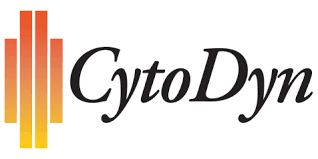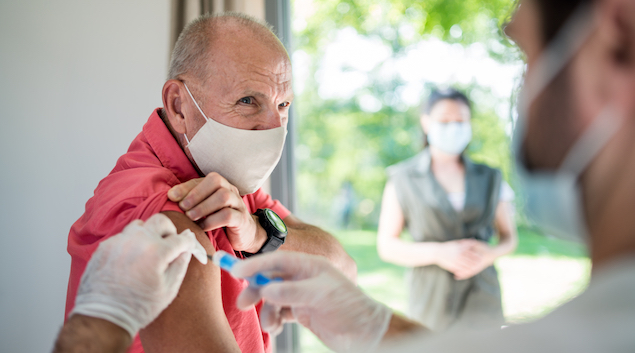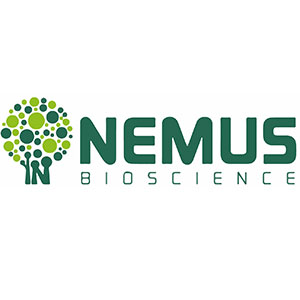VANCOUVER, Washington, May 17, 2017, CYDY, (GLOBE NEWSWIRE) — CytoDyn Inc. (OTC.QB:CYDY), a biotechnology company focused on the development of new therapies for combating human immunodeficiency virus (HIV) infection, announces the treatment of the first patient in its Phase 2 clinical trial for Graft versus Host Disease (GvHD), its leading immunologic indication for PRO 140.
GvHD is a potentially life-threatening complication in patients requiring a bone marrow transplant because their immune systems have been depleted during aggressive cancer therapy for certain types of leukemia. These patients have a 40-60% one-year survival rate, with relapsed GvHD as the leading causes of death.
The multicenter, 60-patient Phase 2 trial will evaluate the safety and efficacy of PRO 140 with an equal number of patients receiving PRO 140 and placebo. The trial is supported by study data using a xeno-GvHD animal model where human bone marrow stem cells were administered to immunocompromised mice, which leads to severe GvHD culminating in death. PRO 140 at a comparable dose to that being employed in CytoDyn’s Phase 2 trial completely eliminated any signs of GvHD in these mice. Effects of stem cell engraftment was apparent in blood, spleen and bone marrow of the mice without signs of GvHD. This preclinical study is being submitted to the U.S. Food and Drug Administration (FDA) in support of CytoDyn’s Orphan Drug Designation application and publication of this data is forthcoming.
“We selected the transplantation indication called GvHD as our first expansion of PRO 140 into a non-HIV clinical indication because it targets the CCR5 receptor, which is known to be an important mediator of GvHD, especially in the organ damage that is the usual cause of death,” said Denis R. Burger, Ph.D., CytoDyn’s Chief Science Officer. “We plan to explore additional opportunities to expand the clinical applications of PRO 140 to those indications where CCR5 plays an important role, namely certain autoimmune diseases and cancer.”
If CytoDyn receives positive results from this Phase 2 study, the Company expects to file for Breakthrough Designation with the FDA to expedite the commercialization of PRO 140 for this clinical indication. As previously reported, PRO 140 is considered safe and well tolerated with negligible toxicities or side effects. The Company believes these attributes make it promising for the treatment of GvHD.
About Graft versus Host Disease
GvHD occurs after a bone marrow or stem cell transplant in which an individual receives bone marrow tissue or cells from a donor, known as allogeneic transplant. The transplanted cells regard the recipient’s body as foreign and attack the recipient’s body. GvHD does not occur when an individual receives his or her own cells during a transplant. Before a transplant, tissue and cells from possible donors are tested to determine how closely they match the person having the transplant with GvHD is less likely to occur, or symptoms to be milder, when the match is close. The chance of GvHD can be between 30% and 40% when the donor and recipient are related and 60% to 80% when the donor and recipient are not related. There are two types of GvHD: acute and chronic. Symptoms in both acute and chronic GvHD range from mild to severe. Acute GvHD usually occurs within the first three months after a transplant. According to the U.S. Department of Health and Human Services, nearly 5,000 allogeneic transplants were performed in the U.S. in 2016.
About CytoDyn
CytoDyn is a biotechnology company focused on the clinical development and potential commercialization of humanized monoclonal antibodies for the treatment and prevention of HIV infection. The Company has one of the leading monoclonal antibodies under development for HIV infection, PRO 140, which has completed Phase 2 clinical trials with demonstrated antiviral activity in man and is currently in Phase 3. PRO 140 blocks the HIV co-receptor CCR5 on T cells, which prevents viral entry. Clinical trial results thus far indicate that PRO 140 does not negatively affect the normal immune functions that are mediated by CCR5. Results from seven Phase 1 and Phase 2 human clinical trials have shown that PRO 140 can significantly reduce viral burden in people infected with HIV. A recent Phase 2b clinical trial demonstrated that PRO 140 can prevent viral escape in patients during several months of interruption from conventional drug therapy. CytoDyn intends to continue to develop PRO 140 as a therapeutic anti-viral agent in persons infected with HIV and to pursue non-HIV indications where CCR5 and its ligand CCL5 may be involved. For more information on the Company, please visit www.cytodyn.com.
About PRO 140
PRO 140 belongs to a new class of HIV/AIDS therapeutics – viral-entry inhibitors – that are intended to protect healthy cells from viral infection. PRO 140 is a humanized IgG4 monoclonal antibody directed against CCR5, a molecular portal that HIV uses to enter T-cells. PRO 140 blocks the predominant HIV (R5) subtype entry into T-cells by masking this required co-receptor, CCR5. Importantly, PRO 140 does not appear to interfere with the normal function of CCR5 in mediating immune responses. PRO 140 does not have agonist activity toward CCR5 but does have antagonist activity to CCL5, which is a central mediator in inflammatory diseases. PRO 140 has been the subject of seven clinical trials, each demonstrating efficacy by significantly reducing or controlling HIV viral load in human test subjects. PRO 140 has been designated a “fast track” product by the FDA. The PRO 140 antibody appears to be a powerful antiviral agent leading to potentially fewer side effects and less frequent dosing requirements as compared to daily drug therapies currently in use.
Forward-Looking Statements
This press release includes forward-looking statements and forward-looking information within the meaning of United States securities laws, including statements regarding CytoDyn’s current and proposed trials and studies and their results, costs and completion. These statements and information represent CytoDyn’s intentions, plans, expectations, and beliefs and are subject to risks, uncertainties and other factors, many beyond CytoDyn’s control. These factors could cause actual results to differ materially from such forward-looking statements or information. The words “believe,” “estimate,” “expect,” “intend,” “attempt,” “anticipate,” “foresee,” “plan,” and similar expressions and variations thereof identify certain of such forward-looking statements or forward-looking information, which speak only as of the date on which they are made.
CytoDyn disclaims any intention or obligation to publicly update or revise any forward-looking statements or forward-looking information, whether as a result of new information, future events or otherwise, except as required by applicable law. Readers are cautioned not to place undue reliance on these forward-looking statements or forward-looking information. While it is impossible to identify or predict all such matters, these differences may result from, among other things, the inherent uncertainty of the timing and success of and expense associated with research, development, regulatory approval, and commercialization of CytoDyn’s products and product candidates, including the risks that clinical trials will not commence or proceed as planned; products appearing promising in early trials will not demonstrate efficacy or safety in larger-scale trials; future clinical trial data on CytoDyn’s products and product candidates will be unfavorable; funding for additional clinical trials may not be available; CytoDyn’s products may not receive marketing approval from regulators or, if approved, may fail to gain sufficient market acceptance to justify development and commercialization costs; competing products currently on the market or in development may reduce the commercial potential of CytoDyn’s products; CytoDyn, its collaborators or others may identify side effects after the product is on the market; or efficacy or safety concerns regarding marketed products, whether or not scientifically justified, may lead to product recalls, withdrawals of marketing approval, reformulation of the product, additional preclinical testing or clinical trials, changes in labeling of the product, the need for additional marketing applications, or other adverse events.
CytoDyn is also subject to additional risks and uncertainties, including risks associated with the actions of its corporate, academic, and other collaborators and government regulatory agencies; risks from market forces and trends; potential product liability; intellectual property litigation; environmental and other risks; and risks that current and pending patent protection for its products may be invalid, unenforceable, or challenged or fail to provide adequate market exclusivity. There are also substantial risks arising out of CytoDyn’s need to raise additional capital to develop its products and satisfy its financial obligations; the highly regulated nature of its business, including government cost-containment initiatives and restrictions on third-party payments for its products; the highly competitive nature of its industry; and other factors set forth in CytoDyn’s Annual Report on Form 10-K for the fiscal year ended May 31, 2016 and other reports filed with the U.S. Securities and Exchange Commission.











